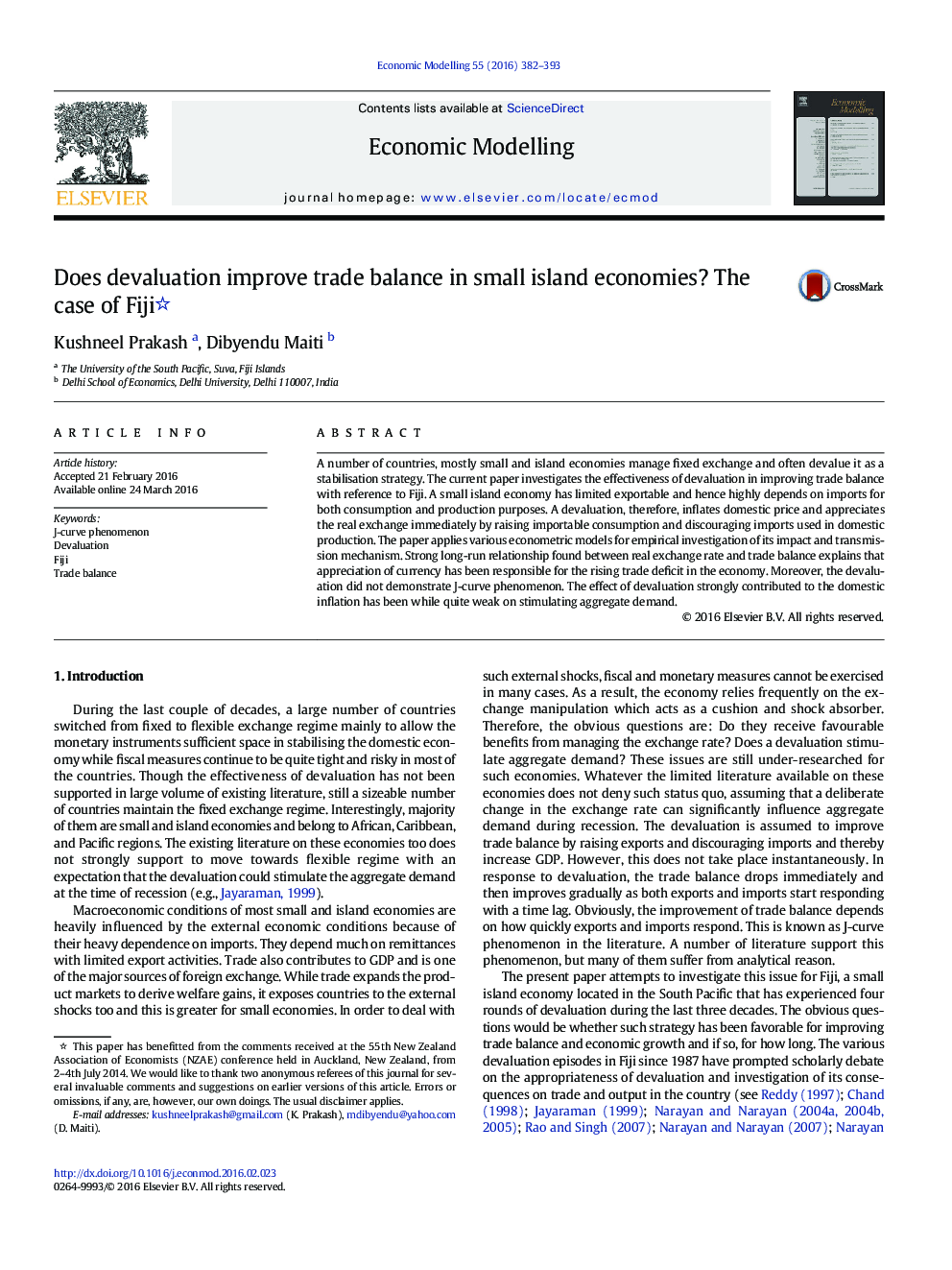| Article ID | Journal | Published Year | Pages | File Type |
|---|---|---|---|---|
| 5053580 | Economic Modelling | 2016 | 12 Pages |
Abstract
A number of countries, mostly small and island economies manage fixed exchange and often devalue it as a stabilisation strategy. The current paper investigates the effectiveness of devaluation in improving trade balance with reference to Fiji. A small island economy has limited exportable and hence highly depends on imports for both consumption and production purposes. A devaluation, therefore, inflates domestic price and appreciates the real exchange immediately by raising importable consumption and discouraging imports used in domestic production. The paper applies various econometric models for empirical investigation of its impact and transmission mechanism. Strong long-run relationship found between real exchange rate and trade balance explains that appreciation of currency has been responsible for the rising trade deficit in the economy. Moreover, the devaluation did not demonstrate J-curve phenomenon. The effect of devaluation strongly contributed to the domestic inflation has been while quite weak on stimulating aggregate demand.
Keywords
Related Topics
Social Sciences and Humanities
Economics, Econometrics and Finance
Economics and Econometrics
Authors
Kushneel Prakash, Dibyendu Maiti,
